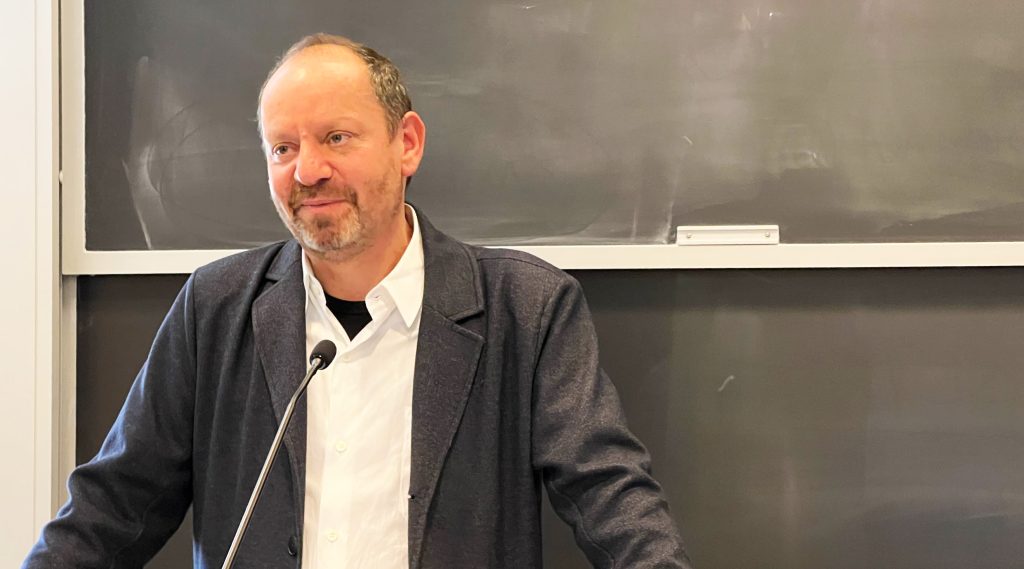The 2022 Owen M. Kupferschmid Annual Memorial Lecture served as a reunion for former BC Law visiting professor Philippe Sands who returned to campus April 21 to deliver his lecture and answer questions from students and faculty in attendance.
The event, hosted annually by Boston College Law School’s Holocaust and Human Rights Project (HHRP), welcomes a distinguished lecturer each year to share their insight and perspective with the BC Law community regarding various topics centered around accountability and human rights.
Sands, a barrister in the United Kingdom, professor of law at the University College London and current visiting professor at Harvard Law School, chose to discuss the origins of the concepts “genocide” and “crimes against humanity” as well the courtroom and societal implications of characterizing crimes with such terms.
When Sands was asked to deliver a lecture at Lviv University Faculty of Law in Ukraine in 2010, he said he was amazed to learn that the origin of both terms could be traced back to one man in 1945, Raphael Lemkin, who had been a student at the Lviv University Faculty of Law in the early 1920s. Considering the current crisis in Ukraine, Sands found this information and the related topic of war crimes important to share with the audience at BC Law.
He explained how the relationship between genocide and crimes against humanity can be compared to that of a square and rectangle, because every act of genocide is a crime against humanity, but not every crime against humanity is a genocide.
“The essential difference between the two concepts centers around who is protected and why they are protected. If 10,000 people are killed, murdered, or exterminated, they are [being killed] systematically, which will always be a crime against humanity, but will it be a genocide? That depends on the intentions of the killers and the ability of prosecutors to prove that intention,” Sands explained.
“To establish the crime of genocide, you must prove the act of killing is motivated by a special intent—the intent to destroy a group, in whole or in part. If a prosecutor can’t prove that a large number of people have been killed with that special intent, then the crime of genocide is not established under international law.”
Sands said he struggles continuously with the fact that the characterization or labeling of crimes with these two terms results in two very different, sometimes troubling, outcomes. He said crimes against humanity receive far less attention than genocides, while the actual significance of the crimes could be rather equal in terms of the impact on individuals, communities, and humanity. He related this to President Biden’s labeling of the atrocities in Ukraine as a genocide.
“The problem is—and this, of course, is why President Biden called it a genocide instead of a crime against humanity—that no one pays any attention when someone says something is a crime against humanity; it doesn’t even make it into the paper,” said Sands. “But the moment you say it’s a genocide, it’s on the front page of every newspaper in the world. It’s a way of gathering attention, but there are risks.”
One risk, Sands explained, is that the use of the term genocide often sparks a debate, which draws attention away from what’s actually happened on the ground. “Why does it matter what we call it? That is not what’s important. I think this hierarchy of crimes is very problematic,” said Sands.
Sands added that he’s tried to lower the bar for what is characterized as a genocide in various cases, not to normalize that kind of behavior, but to reduce its power by lowering the pedestal on which the concept of genocide is placed.
“It raises the dreadful possibility that the invention of the concept of genocide will end up giving rise to more of the very things it was intended to prevent,” he warned.


